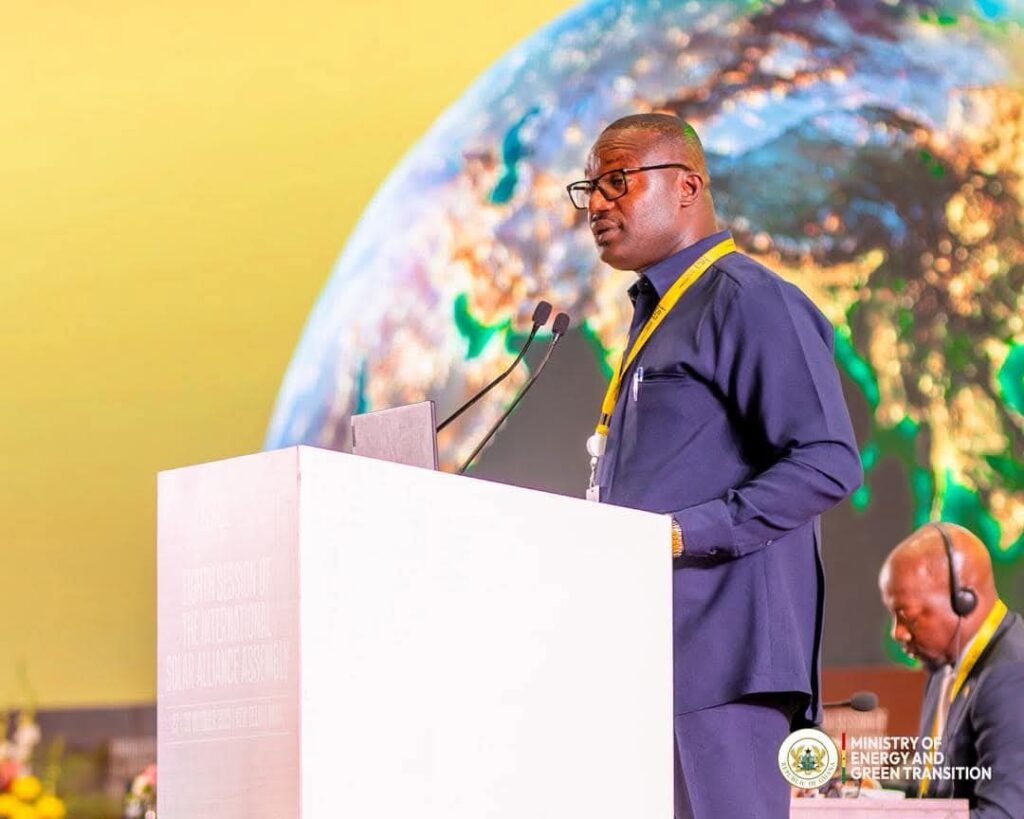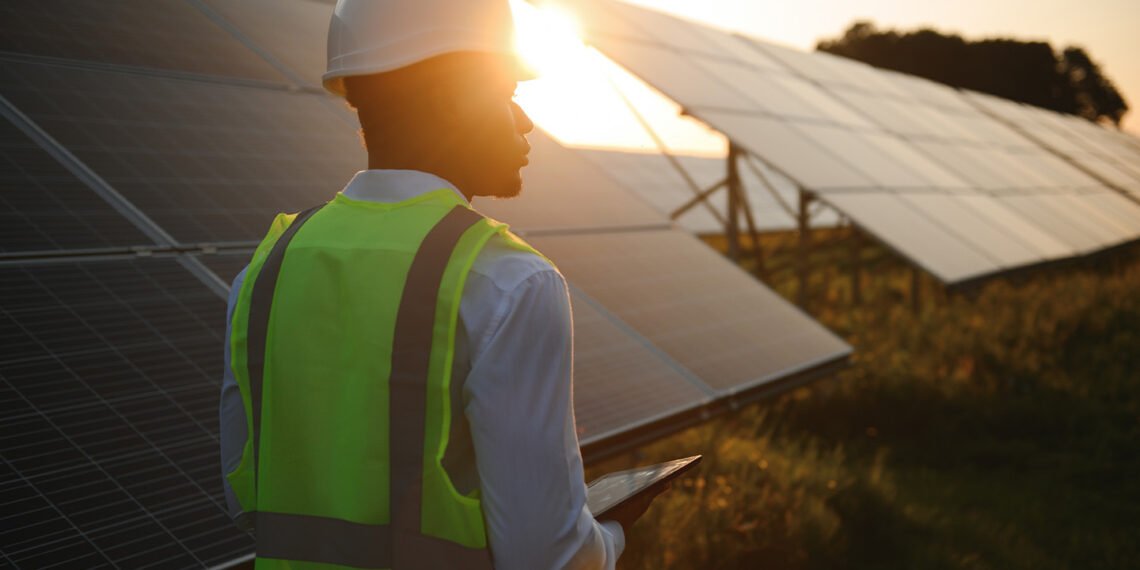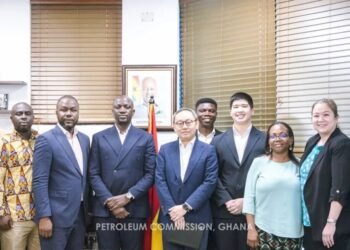Ghana’s Minister for Energy and Green Transition, Hon. John Abdulai Jinapor, has reaffirmed the country’s strong commitment to a sustainable energy future, announcing a $3.4 billion renewable energy investment pipeline designed to fast-track Ghana’s transition toward cleaner, climate-resilient growth.
Speaking on Ghana’s evolving energy priorities, Hon. Jinapor said the government’s agenda reflects a “bold and irreversible shift” toward integrating renewable energy and climate action into the very core of national development.
“I reaffirm Ghana’s unwavering commitment to the global clean energy transition and expressed appreciation to the International Solar Alliance (ISA) for its continued partnership in advancing solar energy development across member countries.”
Hon. John Abdulai Jinapor, Minister for Energy and Green Transition
According to him, this rebranding of the ministry underscores Ghana’s determination to align with global sustainability goals while strengthening domestic institutional capacity to deliver on renewable energy targets.
“Demonstrating strong national leadership and alignment with global sustainability goals, President John Dramani Mahama renamed the Ministry of Energy to the Ministry of Energy and Green Transition.”
Hon. John Abdulai Jinapor, Minister for Energy and Green Transition
$3.4 Billion Renewable Investment Drive

Hon. Jinapor revealed that Ghana’s clean energy transformation is anchored by a $3.4 billion renewable energy investment pipeline, backed by the newly established Renewable Energy and Green Transition Investment Fund.
The fund, he said, is designed to attract concessional financing and private capital into priority renewable energy projects nationwide.
The fund will target investments across solar, wind, mini-hydro, and biomass energy infrastructure particularly in rural and off-grid communities to close the country’s energy access gap and enhance energy security.
“This initiative forms part of Ghana’s broader ambition to attain 10% renewable energy in the national generation mix by 2030, representing 1,350 MW of clean energy capacity.”
Hon. John Abdulai Jinapor, Minister for Energy and Green Transition
This objective, he said, reflects both environmental responsibility and economic necessity.
The Minister underscored that the government’s green transition is not merely an environmental agenda but also an economic strategy to spur job creation, improve energy affordability, and foster technological innovation.
He emphasized that clean energy investments would catalyze industrial growth and boost competitiveness while aligning with the Sustainable Development Goals (SDGs) and Ghana’s Nationally Determined Contributions (NDCs) under the Paris Agreement.
Partnership with the International Solar Alliance

Hon. Jinapor lauded the ongoing collaboration between Ghana and the International Solar Alliance (ISA), describing the partnership as critical to accelerating solar energy expansion and unlocking green investment opportunities.
He said Ghana continues to benefit from ISA’s technical support and policy expertise in developing bankable solar projects and innovative financing mechanisms.
“Looking ahead, Ghana will continue to collaborate with the ISA and its global partners to advance policy reforms, innovative financing, and scalable solar solutions, particularly in agriculture value chains and e-mobility, to power a sustainable and inclusive green future.”
Hon. John Abdulai Jinapor, Minister for Energy and Green Transition
Through the partnership, Ghana is exploring solar-powered irrigation systems, mini-grid solutions for rural electrification, and solar charging infrastructure for electric vehicles as part of efforts to decarbonize key sectors of the economy.
He added that Ghana’s new energy direction would prioritize policy coherence, private sector participation, and transparent governance, with the Ministry of Energy and Green Transition serving as the central coordinating body for renewable energy policy and investment alignment.
Energy analysts have described Ghana’s shift as one of the most comprehensive policy reorientations in Africa’s energy landscape in recent years.
The renaming of the Ministry, they say, signals a structural commitment to decarbonization and sets Ghana apart as a potential regional leader in renewable energy integration.
Linking energy development to climate goals, the government hopes to position Ghana as a model for sustainable industrialization, one that balances economic growth with environmental responsibility.
READ ALSO: BoG’s $1.15bn FX Injection Sparks Clash with IMF and World Bank Over Cedi Stabilization























